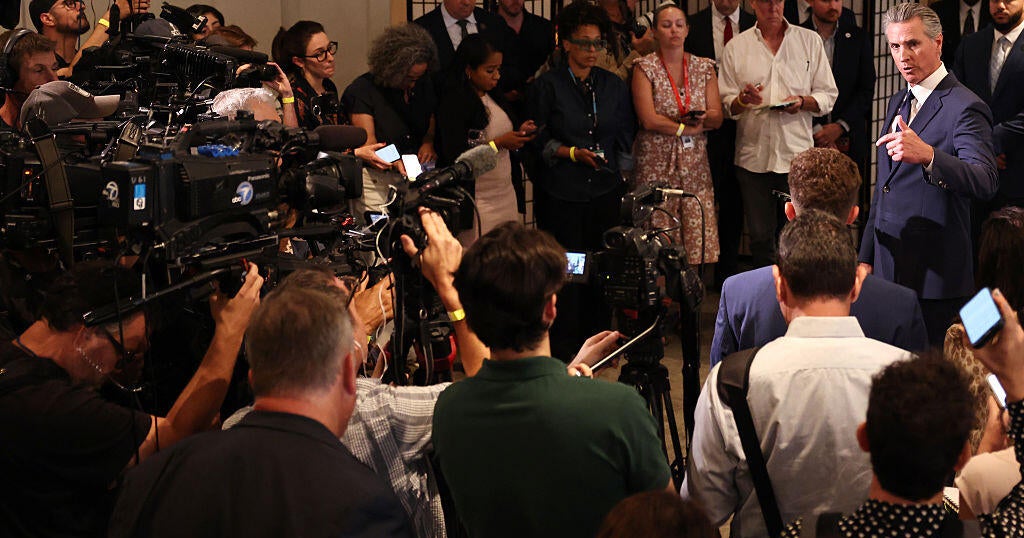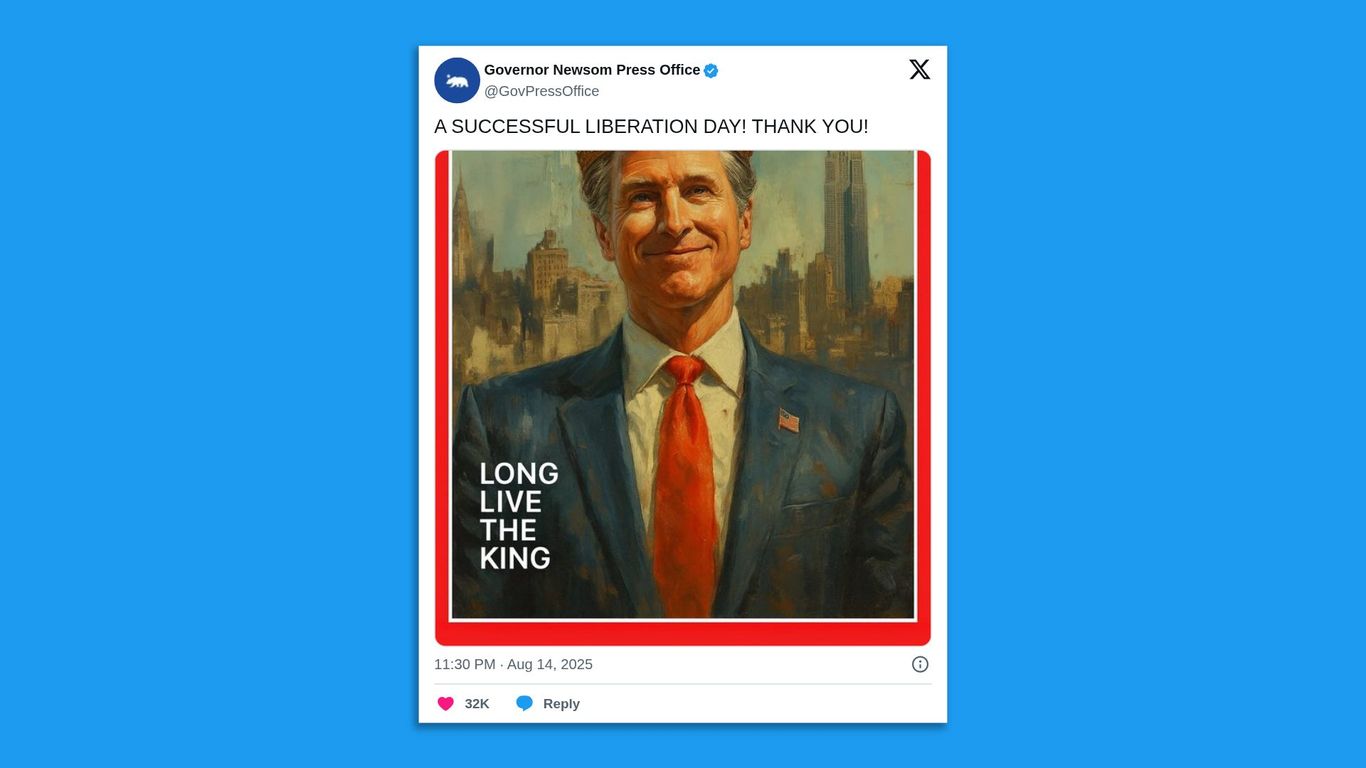California Redistricting Battle: House Republicans Call for Action
#california #redistricting #house_republicans #gerrymandering #voter_disenfranchisement

Introduction
In a recent development in the ongoing redistricting battle in California, House Republican Rep. Kevin Kiley (R-Calif.) has called for "action" from House Speaker Mike Johnson (R-La.). This comes after Johnson publicly criticized the proposed House map put forth by California Democrats and announced measures to stop it from being implemented.
Key Details
Kiley has been a vocal opponent of the proposed map, citing concerns over gerrymandering and voter disenfranchisement. He has also expressed frustration with the lack of action from Johnson and other House Republicans in addressing the issue. The proposed map would likely favor Democrats and could potentially lead to a shift in the balance of power in the state.
Impact
The redistricting battle in California has significant implications for both political parties and the state as a whole. It highlights the ongoing struggle over fair representation and the potential for political manipulation through redistricting. As the deadline to finalize the new map approaches, it remains to be seen what actions will be taken by House Republicans and whether Johnson will heed Kiley's call for "action."
About the People Mentioned
Mike Johnson
Mike Johnson, born January 30, 1972, in Shreveport, Louisiana, is an American lawyer and Republican politician serving as the 56th Speaker of the U.S. House of Representatives since October 25, 2023. He represents Louisiana’s 4th congressional district, covering northwest and western regions of the state, including nearly 760,000 residents across approximately 16 to 20 parishes. Johnson was first elected to Congress in December 2016 by the largest margin of victory in his region in over 50 years and is currently serving his fifth term[1][2][3][4]. Before his tenure in Congress, Johnson earned a Juris Doctor from Louisiana State University’s Paul M. Hebert Law Center in 1998 and worked as an attorney, including with the conservative Christian legal group Alliance Defending Freedom. He also served in the Louisiana House of Representatives from 2015 to 2017. Johnson has been a prominent social conservative, advocating for policies such as nationwide abortion bans and opposing the expansion of medical cannabis. He chaired the Republican Study Committee from 2019 to 2021, the largest conservative caucus in Congress, and served as Vice Chairman of the House Republican Conference and Deputy Whip before becoming Speaker[1][2][4]. Johnson's rise to Speaker was notable for its speed; he attained the position faster than anyone since 1883. His speakership followed the ousting of Kevin McCarthy and has been characterized by efforts to promote conservative principles including limited government, individual freedom, fiscal responsibility, and support for military and veterans. In 2024, Johnson was reelected as Speaker for the 119th Congress. His leadership also focuses on growing the House Republican majority and advancing conservative legislative priorities[1][3][4][5]. He is married to Kelly Johnson, a licensed pastoral counselor and former teacher, and they have five children. The family resides in Bossier Parish, Louisiana[1].
About the Organizations Mentioned
House Republican
The **House Republican Conference** is the official caucus for Republican members of the U.S. House of Representatives, serving as the primary organizational body for House Republicans. It hosts meetings to unify party strategy, coordinate legislative agendas, and manage internal communications among Republican members. The Conference plays a critical role in shaping the party's policy direction and messaging in the House, especially as Republicans hold the majority[5]. Historically, the House Republican Conference has been central to organizing Republican efforts in the House, providing leadership and a structured forum for policy discussion and party discipline. Leadership roles within the Conference include the Speaker of the House, who serves as the Conference leader, the Majority Leader, Majority Whip, Conference Chair, Vice Chair, Secretary, and Policy Committee Chair. As of 2025, key leaders include Speaker Mike Johnson, Majority Leader Steve Scalise, Majority Whip Tom Emmer, Conference Chair Lisa McClain, and Policy Chair Kevin Hern[5][6]. In 2025, House Republicans control the House with the narrowest majority since 1931, holding 219 seats—just one seat above the minimum needed to pass legislation. This slim margin means the Conference must maintain strong internal unity to advance its legislative agenda under Speaker Johnson's leadership. The tight majority presents challenges in managing party cohesion and negotiating legislative priorities, especially as some Republicans are expected to join the presidential administration and vacate their seats, further tightening margins[1][3][4]. Notable aspects include the Conference's role in coordinating with the Republican-controlled Senate and the Trump administration, facilitating a unified Republican legislative agenda during a period of closely divided Congress. The Conference is also active in public messaging, exemplified by recent statements from leaders like Lisa McClain addressing key policy debates such as Medicaid and budget resolutions[7]. For those interested in business and technology news, the House Republican Conference's decisions on taxation, regulation, innovation funding, and infrastructure policy will significantly influence the legislative environment affecting these sectors in 202
House Speaker
The **Speaker of the House** is the presiding officer and leader of the United States House of Representatives, a role established by the Constitution and rooted in the British parliamentary system. The Speaker is elected every two years by House members and typically comes from the majority party, combining the roles of institutional head, majority party leader, and elected representative[1][3][6]. The Speaker’s core responsibilities include managing the daily order of business on the House floor, deciding which bills come to debate and vote, assigning committee leadership, and certifying passed measures. They maintain order, apply House rules, and recognize members who wish to speak, effectively shaping the legislative agenda and process. While the Speaker can vote as a regular member, they usually vote only in critical or tie-breaking situations[1][2][3][4]. Historically, the Speaker’s role has evolved from a relatively low-profile position to one of immense political power and influence. Early influential Speakers include Henry Clay, Thomas Brackett Reed, and Sam Rayburn. The Speaker also plays a significant part in negotiations between the House, the Senate, and the President, especially on budgetary and legislative priorities. Constitutionally, the Speaker is second in the presidential line of succession, following the Vice President, and has a role in presidential disability procedures under the 25th Amendment[1][6]. Notably, in October 2023, Speaker Kevin McCarthy was removed in a historic first via a motion to vacate, leading to Patrick McHenry serving as acting Speaker pro tempore until a new Speaker was elected. This highlights the political volatility and significance of the position in contemporary governance[2][6]. Currently, Representative Mike Johnson serves as the Speaker of the House. The Speaker’s leadership influences not only legislative outcomes but also broader political dynamics and party organization within the House[5].
California Democrats
The **California Democratic Party** is a pivotal organization in California's political landscape, playing a crucial role in shaping the state's governance and policies. As the largest statewide Democratic party in the U.S., it represents over 10 million Democrats and is dedicated to advancing progressive and liberal values[7]. ## Organization and History - **History**: Historically, California was a swing state but transitioned into a Democratic stronghold in the 1990s, influenced by demographic changes and increased immigration[2][3]. The Democratic Party's influence grew significantly during this period, with notable shifts during the presidency of Bill Clinton and later Barack Obama[1]. - **Mission**: The party's mission is to foster a state that offers fair access to quality education, healthcare, and economic opportunities while addressing systemic racism and environmental issues[4]. ## Key Achievements - **Politics and Governance**: The California Democratic Party has been instrumental in shaping state policies and governance. It has contributed to the state's progressive stance on issues like climate change, racial justice, and immigration reform[4][5]. - **Elections**: The party has successfully supported Democratic candidates in both state and federal elections, contributing to California's status as a solidly Democratic state[2]. ## Current Status - **Influence**: Currently, the party holds significant influence in California's government, with Democrats controlling the state legislature and holding key executive offices[2]. - **Membership and Support**: With a strong grassroots network, the party continues to mobilize support across the state, engaging in ongoing efforts to build a better California for all residents[7]. ## Notable Aspects - **Committee Structure**: The party is organized as a qualified, unauthorized committee, with a focus on raising funds to support Democratic candidates and causes[6]. - **Platform**: The party's platform emphasizes social justice, environmental protection, and economic equality, aligning with broader Democratic values[8]. Overall, the California Democratic Party is a powerful force in













